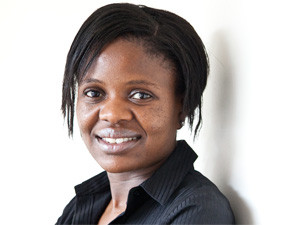
In April 2013, MTN Group was shortlisted among the 12 candidates that qualify for the next stage of bidding for two mobile licences in Myanmar (also known as Burma). This IDC Flash evaluates MTN's prospects of winning one of these mobile licences.
Situation overview
Myanmar has long held tight control of its telecommunications sector and kept foreign competitors out of the market. However, at the beginning of 2013, Myanmar invited bids for two mobile licences to boost coverage to as much as 80% of the country by 2016. At present, mobile penetration in the country, which has a population of around 60 million, stands at 9%. Furthermore, the population of Myanmar is relatively young (68% of the population aged 15-68 in 2011, according to the UN) and literate. Myanmar's nascent telecommunications sector is expected to become one of the most lucrative in the economy as the once-isolated country opens up to foreign investment.
However, Myanmar is a poor country and, according to the International Monetary Fund, has one of the world's lowest GDPs per capita. As a result, the cost of telecommunications has been out of the reach of most of the population. This makes Myanmar a large, underpenetrated market and, thus, very attractive to the world's leading telecommunications companies.
Initially, 90 companies expressed interest in the licences. After a pre-qualification shortlisting process, now 12 operators remain in the race, of which MTN Group is one. From these 12, only four will be further shortlisted, and eventually two will be awarded 15-year licences in June 2013.
The tendering process has attracted some global "heavyweights" into the race. Among the shortlisted operators are consortiums led by China Mobile, France Telecom, MTN Group, Digicel, KDDI, and Singtel. The remaining shortlisted companies - Millicom, Airtel, Telenor, Viettel Group, Axata, and Ooredoo (the former QTel) - have decided to go at it alone, mostly by leveraging their existing presence and experience in Southeast Asia.
MTN Dubai, the division of MTN Group that is leading the bid, has partnered with two other organisations in submitting its tender: M1 Telecom, part of the Lebanese-owned international conglomerate M1 Group, which has interests in telecommunications, real estate, fashion, and travel; and Myanmar-based Amara Communications, which specialises in tower construction, SIM card distribution, electricity distribution, and oil and gas exploration.
Future outlook
MTN Group has not undertaken any large mergers and acquisitions (M&A) initiatives in the past five years, mainly owing to the fact that lucrative opportunities such as the one in Myanmar were few and far between, and the company had predominately focused on Africa and the Middle East as its regions of operation. However, in 2012, the company announced its intention to expand into other emerging markets, including Asia, and announced at the beginning of 2013 that it has between $4 billion and $8 billion to spend on this initiative. This, coupled with the fact that the company has a market cap of $32 billion, puts MTN in a healthy financial position for future bids and greenfield operations, such as the one required in Myanmar.
MTN's track record and experience in emerging markets, though limited to Africa and the Middle East, is also in the company's favour. MTN has managed successfully to operate in some of the most challenging markets in the region, including Sudan, Nigeria, Ethiopia, Iran, and Syria, and currently boasts 25 profitable operations across the Middle East and Africa (MEA). The company also has direct experience of the challenges of a post-sanctions business environment and related developmental issues, a characteristic of Myanmar that MTN believes that it can navigate successfully. Despite the fact that MTN does not have direct presence in Southeast Asia, its partnership with Amara Communications will provide the operator with the much-needed support to navigate the Myanmar market, and it will also enable MTN to shorten the amount of time required to roll out infrastructure and distribute SIM cards for its network.
Nevertheless, despite its strengths and experience, MTN is up against formidable competition in the bid to enter Myanmar's telecommunications market. China Mobile has been aggressively driving its international expansion strategy for the past three years but has repeatedly lost out to other bidders with deeper pockets. For the Myanmar bid, however, China Mobile has partnered with Vodafone. IDC believes that this partnership will be beneficial to China Mobile in that it can share the financial risk with Vodafone and can leverage Vodafone's experience in emerging markets within and outside of Asia. That being said, neither company has operations in Myanmar, and should their bid be successful, a longer time to market is likely as they navigate the local business environments and, for example, negotiate and enter into partnerships with local distributors.
Share